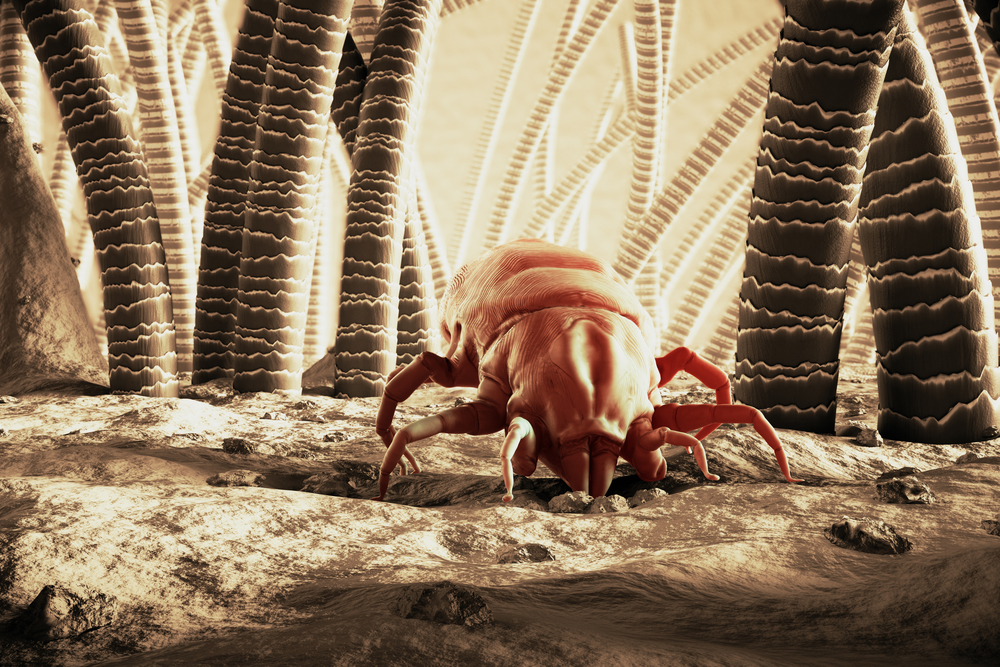We are surrounded by dust. There is dust in the air outdoors, there is dust floating around and landing on surfaces in our homes. We are exposed to dust from the air we breathe in, and the surfaces we touch. Babies are sometimes more exposed to dust than adults, because they are touching more surfaces than adults are when crawling around.
Dust can be caused by bits of soil, pet dander, dirt in the air, bits of bugs, skin cells, hair, bits of clothing, chemicals from household products, pollen, mold, dust mites, fungi, bacteria, and viruses.
Health Issues From Dust Exposure
Though having a little bit of dust in your house may not be bothersome, long term exposure to a lot of dust can cause health issues.
If you have an already existing condition of asthma, emphysema, bronchitis, or heart disease all of these increase the risk of breathing in airborne dust.
Long term breathing in of dust can cause eye irritation, sneezing, coughing, hay fever, and asthma attacks.
Allergic reactions can happen even in people who don’t battle allergies on a normal basis.
Heart and lung diseases can occur when breathing in buildup of dust. Severe breathing problems are another health risk.
Buildup of dust can cause allergic reactions to pet dander, mold spores, pollen, dust mites.
HVAC System & Dust
Extra dust buildup that isn’t cleaned properly can cause trouble with your HVAC system. When it sucks in extra dust it can cause mold buildup within the HVAC system. This can cause problems with the system as well as shorten the lifespan of the product.
If you have a constantly dirty house your HVAC system could be to blame too. It is important to make sure that you are changing the air filter regularly. As well as making sure your HVAC is staying cleaned, maintained, repaired, and when needed to be replaced. Dirty HVAC filters can cause extra dust to be spread throughout your house.
Causes Of Dust
There are different things that can cause your house to be extra dusty. One is if you live in an urban area. Living in the city has more causes of dust and pollution to seep into your home. Factories, extra vehicles, and general pollution is greater in urban areas, which can cause your house to be extra dusty.
Signs & Symptoms of a Dust Problem
If you are noticing that your allergies are always acting up it may be because of the amount of dust in your house. Are you always suffering from coughing, sneezing, watery eyes, or a runny nose when you are at home? Your house may be making you sick.
Not only is the amount of dust able to make you sick, but what is in the dust can also make you sick. Dust can consist of different bacteria, fungus, or viruses, which can all cause you to become sick.
Not cleaning regularly is another red flag that your house may have a buildup of dust. You should be dusting, mopping, and vacuuming your house at least once a week. Depending on where you live and the contributors to your dust in the house, whether that be the amount of people, or pets you have, you may need to be vacuuming every other day.
When cleaning, oftentimes linens and rugs are ignored. Curtains, window coverings, and bed sheets are notorious for hanging on and trapping dust. Make sure you are adding these to your cleaning checklist each week. You can vacuum curtains or window treatments. Blinds can be wiped down with a wet microfiber cloth. Bedding can be washed. Make sure your mattress has a protective cover over it so your mattress cannot trap dust in it.
Dust Prevention
Dust is going to happen. There is no way to completely stop your house from producing dust. But there are some things you can do to cut down on the amount of dust in your home.
More and more people are choosing to have a no shoe policy in their homes. This is a great way to stop dust from spreading throughout your whole house. 80% of the dust that enters our homes is off your shoes.
One is to get rid of decorative clutter. They are dust catchers and will hold onto dust, no matter how many times you clean them. Get a cleaning routine that works for you.
When cleaning make sure you are working from the top to the bottom. When cleaning off ceiling fans the dust has a tendency to fall down to the ground. Don’t vacuum your floors and then clean your ceiling fans, reverse that so you can be sure you are getting rid of all the unwanted dust.
Wet clothes are the best way to trap dust when cleaning. Dusters have a tendency to fling dust around, not actually to collect it.
Make sure you are using the proper tools when cleaning.
Depending on where you live if the outside air quality is bad, keep doors and windows shut.
Add an air purifier to help.
Takeaway
Dust occurs from many different things. We can’t always know what is in the dust we are breathing. Chemicals can be in dust that have been linked to lung disease, heart disease, or cancer.
Long term exposure to dust buildup can cause health issues like breathing problems, allergic reactions, or asthma attacks.
Dust is everywhere and it can harm your health! Indoor air quality is important. #HealthSurgeon
READ MORE: Spring Cleaning Health Benefits
Sources:
https://www.thecleaningadvantage.com/6-signs-of-a-dusty-house-thats-in-need-of-a-deep-cleaning/
https://www.airoasis.com/blogs/articles/how-dust-can-affect-health#:~:text=However%2C%20with%20mismanaged%20household%20dust,dirty%20ductwork%20in%20your%20home.
https://www.360precisioncleaning.com/5-signs-of-a-dusty-house-thats-in-need-of-a-deep-cleaning/
https://www.usatoday.com/story/life/health-wellness/2021/08/09/how-often-should-dust-clean/5325282001/
https://aspireheatingcooling.com/why-is-my-house-so-dusty-a-complete-guide-to-living-dust-free/









